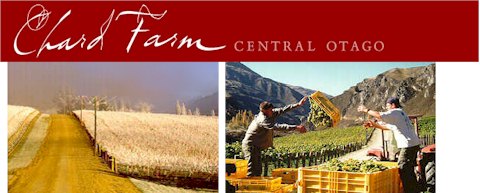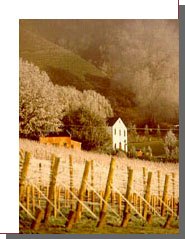


He arrived at the tender age of 14 and worked in the Dunstan and Gibbston areas for several years before settling at the Morven Ferry end of the old coach road to Queenstown, a place that is now well known in the area as "Chard Farm."
Chard started with a one-acre strip, enough to accommodate a vegetable plot and an orchard. Richard milked a couple of cows, kept a few hens and became more interested in supplying the miners with food rather than the allurement of gold. Slowly the farm grew to its current size of 50 acres as small plots were taken over.
Today, Chard Road is a quiet back-country byway, used by neighbouring farmers and visitors to the Chard Farm vineyard. In days gone by however, it was part of the old main coach link between Queenstown and Cromwell . The precipitous bluffs on the Southern side of the main road at the entrance to the Kawarau Gorge from Queenstown, have proved a major obstacle to traffic into the Wakatipu Basin since William Rees and Nicholas von Tunzelman first settled in the area around 1860.
They were the first to come into the area with the intention of setting up a commercial vineyard and selected the Chard Farm site after careful evaluation of the peculiarities of grape growing in Central Otago.

Rob studied winemaking in Germany for three years in the early eighties before returning to New Zealand in 1985 to search for the "terroir" that best emulated the cool continental climate and soils of some of the greatest wine producing areas of the world -- most notably the Burgundy and Alsace regions of France.
That search lead to Central Otago. The long term goal being to craft the finest classic cool climate varietal wines of Pinot Noir, Riesling, Pinot Gris and Chardonnay.
Our recent expansion of the winery has been completed and we're pleased to report the underground barrel cellar and specialist Pinot Noir cuverie work very well.
The barrel cellar uses the old world technique of sitting the barrels on bare earth pits that have been filled with gravel. This lets the cellar breath, but more importantly keeps the humidity high, thereby preventing a lot of wine evaporation aka "the angels share" and therefore loss of wine.
























